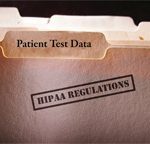 by Donna Vanderpool, MBA, JD
by Donna Vanderpool, MBA, JD
Donna Vanderpool, MBA, JD, is Vice President, Professional Risk Management Services, Arlington, Virginia.
Innov Clin Neurosci. 2014;11(11–12):41–44
This ongoing column is dedicated to providing information to our readers on managing legal risks associated with medical practice. We invite questions from our readers. The answers are provided by PRMS, Inc. (www.prms.com), a manager of medical professional liability insurance programs with services that include risk management consultation, education and onsite risk management audits, and other resources to healthcare providers to help improve patient outcomes and reduce professional liability risk. The answers published in this column represent those of only one risk management consulting company. Other risk management consulting companies or insurance carriers may provide different advice, and readers should take this into consideration. The information in this column does not constitute legal advice. For legal advice, contact your personal attorney. Note: The information and recommendations in this article are applicable to physicians and other healthcare professionals so “clinician” is used to indicate all treatment team members.
QUESTION
“I perform psychological testing and was trained not to disclose raw psychological testing data directly to patients. I now have a patient demanding access to my testing data, claiming HIPAA [Health Insurance Portability and Accountability Act of 1996] requires disclosure to patients. I offered the patient a summary of the results, but the patient is insisting on the raw data. Is my patient correct? If so, isn’t that going to ultimately result in the invalidity of assessment tools?”
ANSWER
Your patient is correct in that you are required to disclose test data to the patient, pursuant to a release authorization. However, patients do not have access to test materials. While this may seem straightforward, this issue becomes more complicated when the answers are recorded on a test instrument, or when disclosure of testing materials is sought in litigation.
Definitions: “Test data” versus “test materials.” The American Psychiatric Association (APA) updated its Ethical Principles of Psychologists and Code of Conduct (APA Ethics Code) in 2002 to be consistent with patients’ rights under HIPAA to access protected health information. According to the APA:
9.04 Test data refers to raw and scaled scores, client/patient responses to test questions or stimuli and psychologists’ notes and recordings concerning client/patient statements and behavior during an examination. Those portions of test materials that include patient/client responses are included in the definition of test data. 9.11 Test materials refers to manuals, instruments, protocols and test questions or stimuli and does not include test data.
Test data are unique to the particular patient, but test materials do not include anything unique to the patient. If the test materials contain information unique to the patient, they become, by definition, test data that are to be disclosed to patients. For example, if patient responses are recorded on scoring sheets that contain the test items, the scoring sheets become test data.[1]
Disclosure of test data to patients. Per the APA. APA Ethics Code 9.04, Release of Test Data, states the following:
Pursuant to a client/patient release, psychologists provide test data to the client/patient or other persons identified in the release. Psychologists may refrain from releasing test data to protect a client/patient or others from substantial harm or misuse or misrepresentation of the data or the test, recognizing that in many instances release of confidential information under these circumstances is regulated by law. In the absence of a client/patient release, psychologists provide test data only as required by law or court order.
Per state law. Some states have codified in statutes or regulations the patient’s right to access test data. For example, Georgia simply adopted by regulation[2] the applicable APA Ethics Code sections, including the statement “pursuant to a client/patient release, psychologists provide test data to the client/patient or other persons identified in the release.” Other states do not address the issue explicitly, but rather in guidance by the state psychology board. As an example, the Kentucky Board of Examiners of Psychology issued an Opinion and Declaratory Ruling Regarding the Release of Raw Test Data addressing the change in the APA Ethics Code. The board advises licensees to disclose test data to patients.
Per HIPAA’s Privacy Rule. As of 2003, under HIPAA’s Privacy Rule, patients of covered entities under HIPAA were granted the right of access to the “designated record set,” which consists of billing and medical records. While “psychotherapy notes,” as defined by the Privacy Rule,[3] were excluded from patient access, psychological testing information was not. Section 13424(f) of the Health Information Technology for Economic and Clinical Health (HITECH) Act requires the following:
The Secretary shall study the definition of ‘psychotherapy notes’ in [the Privacy Rule], with regard to including test data that is related to direct responses, scores, items, forms, protocols, manuals or other materials that are part of a mental health evaluation, as determined by the mental health professional providing treatment or evaluation, in such definition and may, based on such study, issue regulations to review such definition.
The Substance Abuse and Mental Health Services Administration was tasked with conducting this study. A few public meetings were held in 2010, but to date, there has been no further information about this issue.
Disclosure of test materials to patients. Per the APA. APA Ethics Code 9.11, Maintaining Test Security, states the following: “Psychologists make reasonable efforts to maintain the integrity and security of test materials and other assessment techniques, consistent with law and contractual obligations, and in a manner that permits adherence to this Ethics Code.” Unlike disclosure of test data that was significantly impacted by HIPAA, the disclosure of test materials has remained unchanged. Accordingly, psychologists should continue to only disclose test materials to qualified licensed psychologists or pursuant to a valid court order.
Per state law. States are inconsistent in safeguarding the security and integrity of test materials. Some states, again such as Georgia,[2] have adopted by regulation the APA Ethics Code. Other states are more explicit, such as New Mexico,[4] where “the psychologist is required to release such [testing] materials only to those licensed and qualified in the use and interpretation of psychological testing and testing materials.” The prohibition on disclosure of test materials to patients may also be found in licensing board guidance, such as the Kentucky Board’s opinion mentioned above. That opinion explicitly states that test materials are not to be disclosed to patients.
Per test publishers. Test publishers need to ensure the validity of their testing materials. One publisher, Pearson, asserts that any reproduction of its tests without the prior written permission from Pearson is a violation of its Terms and Conditions of Sale and Use of Pearson products, and violates copyright and other proprietary rights.[5] Moreover, publishers will claim a right of trade secrets. Pearson cites clarification from the Department of Health and Human Services that “it would not be a violation of [HIPAA’s] Privacy Rule for a covered entity to refrain from providing access to an individual’s protected health information, to the extent that doing so would result in a disclosure of trade secrets.”[5]
Disclosure of testing information in ligitation. Psychologists in the treatment role, not the forensic role. Psychologists who perform psychological testing for treatment purposes may receive a subpoena to disclose test information. To disclose test data, the psychologist would need a release authorization from the patient or a valid court order. States are more restrictive on the disclosure of test materials in litigation. Some states preclude the disclosure of test materials in litigation. For example, under Iowa law,[6] “the test material shall not be disclosed in any administrative, judicial, or legislative proceeding.” Other states may provide specific advice on responding to subpoenas. For example, under New Mexico law,[4] “if test materials are sought by the subpoena or discovery request, the psychologist shall seek a protective order from a court of competent jurisdiction in order to maintain test security. Thereafter, the psychologist shall comply with the court order.”
While valid subpoenas should not be ignored, they need to be responded to. Such a response should include applicable state law and ethics provisions prohibiting the disclosure of test materials. Keeping in mind the contractual issue with the test publisher, psychologists could offer to disclose test materials to the attorney’s expert who is a qualified and licensed psychologist. If the parties continue to insist on the disclosure of the test materials to non-psychologists, psychologists should contact the test publisher’s legal department for further guidance.
Psychologists in the forensic role, not the treatment role. The rules change for psychologists performing independent evaluations for litigation purposes. Section 164.524 of HIPAA’s Privacy Rule exempts from access “information compiled in reasonable anticipation of, or for use in, a civil, criminal, or administrative action or proceeding.” Case law is also instructive.
Requests for forensic psychologist’s test data. In two cases involving custody disputes,[7,8] the court-appointed psychologists in the custody cases were asked to disclose raw data from the psychological testing. Both courts ruled that pre-trial disclosure of test data was not appropriate, given the unique role of the court-appointed forensic psychologist in custody cases. The courts noted that this expert is different from experts retained in other types of litigation. The psychologists in both of these cases were directed to bring their notes for testimony, in the event the report was questioned and there was cause at that point for the notes to be disclosed to the attorneys.
Requests for forensic psychologist’s test materials. Courts have denied parties’ motions for disclosure of test materials. One court[9] advised the requesting party to subpoena the tests from the test publisher. Other courts[10,11] declined to order the disclosure to the attorneys, but advised that the test materials could be disclosed to the qualified psychologists serving as experts in the case. Still other courts[12,13] have ordered the disclosure of test materials, but only after putting into place specific protections proffered by the test publishers, via a protective order from the court. These protections included:
(a) Restricting access to the materials and any testimony regarding the materials to the most limited audience possible, preferably only to counsel and experts engaged by the parties who are professionals qualified to use and interpret the tests;
(b) Restricting use of the test materials only to that required for the resolution of the pending proceeding;
(c) At the conclusion of the proceeding, requiring the prompt return of the materials produced and the destruction of any copies made;
(d) Sealing the record to the extent any portion of such materials are disclosed in pleadings, test, exhibits, or other documents which would otherwise be available for public inspection.
Risk Management Advice
1. To the extent possible, record test data separately from testing materials.
2. Determine if your state licensing board has addressed disclosure of psychological testing information.
3. Require proper legal compulsion to disclose test data, i.e., patient authorization or court order.
4. When faced with a disclosure request that would impact the security and integrity of the test, seek assistance from the test publisher’s legal department.
References
1. Behnke S. Release of test data and APA’s new Ethics Code. Monitor on Psychology. 2003;34(7):70.
2. GA Admin. Code §501-4-.02
3. 45 CFR 164.501 defines “psychotherapy notes” as “notes recorded (in any medium) by a health care provider who is a mental health professional documenting or analyzing the contents of conversation during a private counseling session or a group, joint, or family counseling session and that are separated from the rest of the individual’s medical record. Psychotherapy notes excludes medication prescription monitoring, counseling session start and stop times, the modalities and frequencies of treatment furnished, results of any clinical tests, and any summary of the following items: diagnosis, functional status, treatment plan, symptoms, prognosis, and progress to date.”
4. NM Admin. Code §16.22.2.16(B)
5. Pearson. Legal Policies. http://www.pearsonclinical.com/legal.html
6. IA Code §228.9
7. Ochs v. Ochs, 749 N.Y.S.2d 650 (2002)
8. CP v. AP, 932 N.Y.S.2d 759 (2011)
9. Gavin v. Hilton Worldwide, Inc., 291 F.R.D. 161 (2013)
10. Walton v. North Carolina Dept. of Agriculture, 2011 WL 2893622 (2011)
11. Collins v. TIAA-CREF, 2008 WL 3981462 (2008)
12. Taylor v. Erna, 2009 WL 2425839 (2009)
13. Carpenter v. Superior Court, 45 Cal.Rptr.3d 821 (2006)





